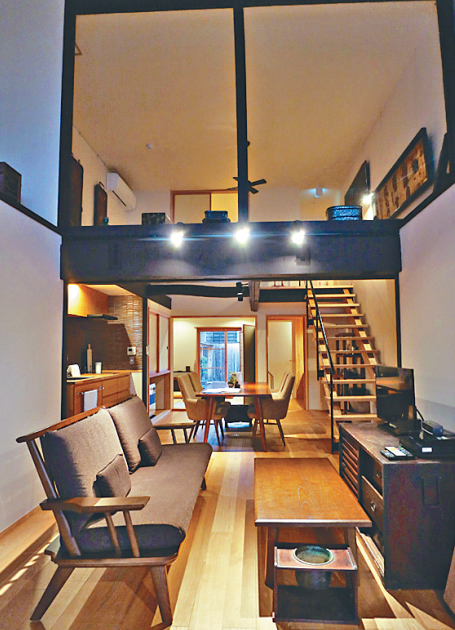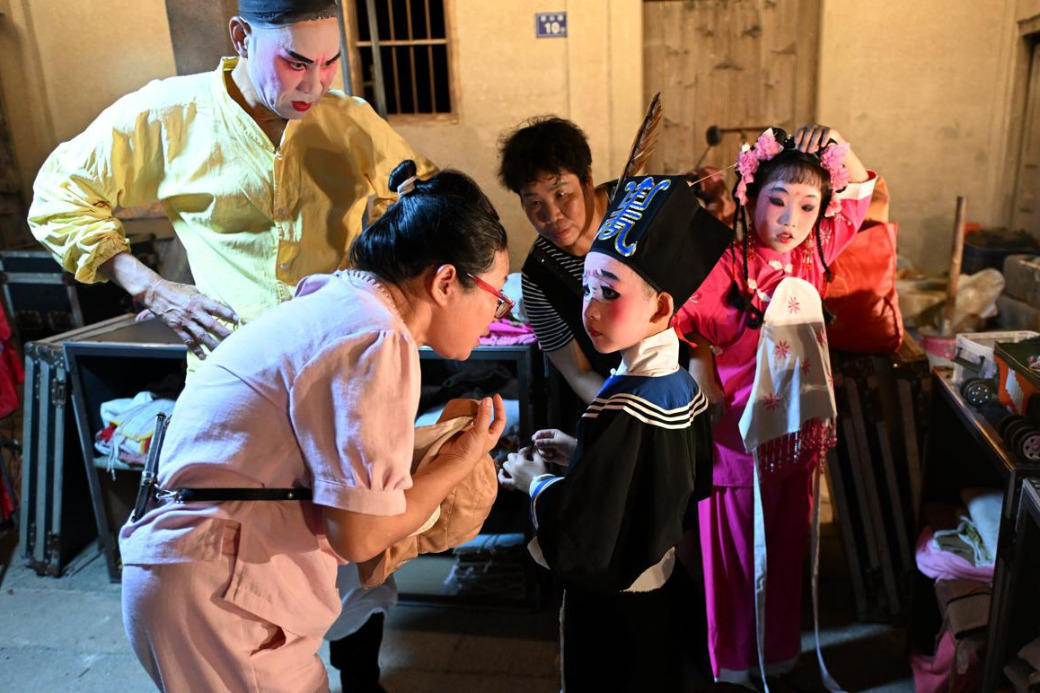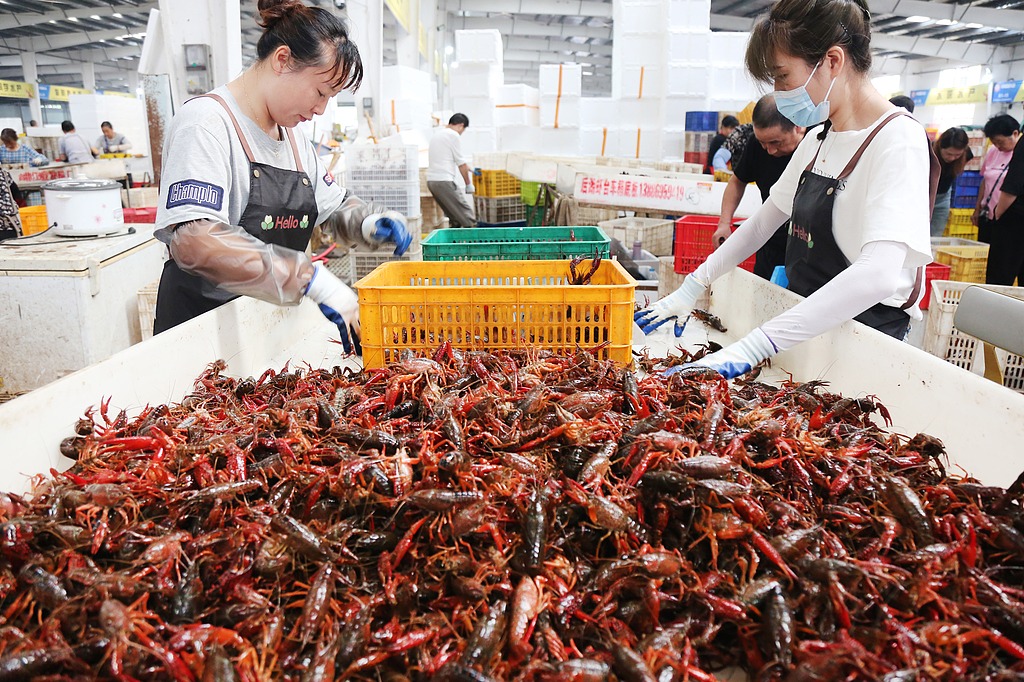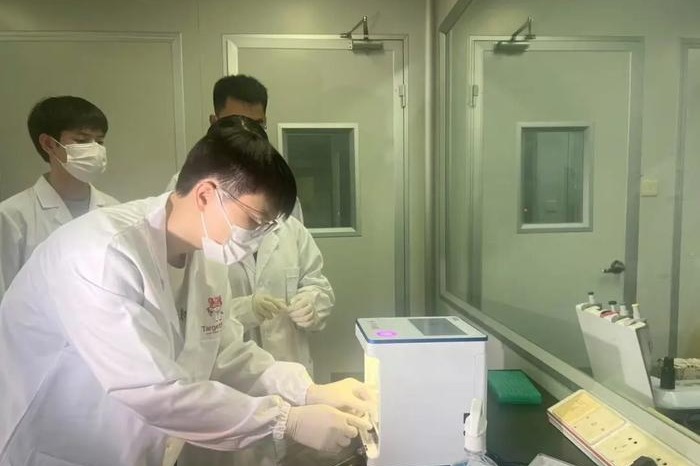Virus wreaks havoc on B&B sector in Japan
Once-lucrative industry dealt a heavy blow by postponement of Olympics

Bed-and-breakfast accommodations, or minpaku in Japanese, have long been a lucrative trade in Japan. They attract flocks of investors, including those from China, yet the Tokyo Olympic Games' postponement to 2021 has cast a chill over the industry in the host country.
B&B operators in cities such as Tokyo, Kyoto and Osaka had expected to rake in a lot of money during the Tokyo Olympics. They now face a shuttered minpaku industry, especially after the Games' delay was announced.
The nation issued a state of emergency for its seven largest prefectures, with measures to close businesses amid the novel coronavirus outbreak.
According to Nikkei Asian Review, the Olympics' postponement wiped out demand from an estimated 9 million domestic and 300,000 foreign spectators. This represents a big hit to the industry.
Many minpaku businesses have closed their doors permanently while others are considering the same path. Japan Tourism Agency data show that during the five weeks up to Feb 12, there was a 15 percent increase in business closures compared to the previous four weeks. Since November, 3,267 minpaku businesses have closed.
In an interview with Nikkei in March, Ryota Kaminaka, CEO of Space Agent, which operates a site for minpaku hosts looking for properties, said: "Our matching rate has gone down about 30 percent compared with last December because hosts have begun to retreat from the market."
"Chinese investors have been backing out of real estate deals. They no longer want to come to Japan or buy properties," Kaminaka added.
Takuya Ichikawa from the Daiwa Institute of Research shares this gloomy view. "Many people have now felt the risks of operating minpaku. Those who have retreated from the market will likely not return, even after the novel coronavirus fades," he said.
Among Chinese investors are Zhu Shihua and his wife who run 31 B&Bs in Japan. They told short-video platform Yitiao that drawing on their figures from 2019-when the occupancy rate of their properties was above 80 percent-they had believed they would enjoy a massive explosion in profits in 2020.
Eyeing opportunities brought by the Tokyo Olympics and the 2025 Osaka Kansai Expo, Zhu's team laid out a plan to build more than 20 new B&Bs this year. They poured a lot of cash into promotion and recruitment.
But in March, their occupancy rates plummeted to zero and incomes fell to zero too. "Our company is large in scale and there are no layoffs. We will lose 150,000 yuan ($21,230) a month," Zhu said. "The subsidy policy introduced by the Japanese government is mainly aimed at poor households with extremely low incomes and individual landlords like me do not have any subsidy."
His projects with other companies were also suspended because of the Olympics' postponement. Zhu said that they will lose a turnover of 50 million yen ($466,640).
"What is more terrible is that it's not known when this nightmare will end," he added.
The double whammy of the virus and Olympics' postponement has driven landlords and their companies to the brink of implosion, said industry insider Liu Yang.
He told Yitiao that although the Japanese government claims it gives minpaku employees an 8,000-yen subsidy per day and offers firms loans, many of his peers have gone bankrupt or will be forced into bankruptcy soon.
The Olympics' postponement has set off a fire sale of properties by Chinese landlords. Some even offered a 40 percent discount, Liu said.
Shi Zhe, another Chinese minpaku operator, told Travel Daily that some hosts are converting short-term rentals into long-term ones.
Those searching for "minpaku in Japan" on Weibo, China's version of Twitter, can find Chinese minpaku hosts seeking to shift their unsold rooms. Some sell rooms cheap while others look to students who are coming to Japan's schools for the spring semester.
"For a long time, buying a house and arranging a B&B in Japan were deified. It is wise to allocate assets in Japan. But if you want to make money from real estate speculation in Japan, you need to be really lucky," Liu said.
"The delayed Olympics will stimulate the healthy growth of the minpaku industry. Otherwise, (without changes in operations), any investment in the sector would turn out to b a failure."

Today's Top News
- China urges the US to cease provocative actions
- Hope, skepticism and questions ahead of Trump-Putin summit
- Xi's article on promoting healthy, high-quality development of private sector to be published
- China's top diplomat urges Japan to learn from its warring past
- China-built roads bring real benefits to Pacific region
- Japan must face up to its wartime past






























